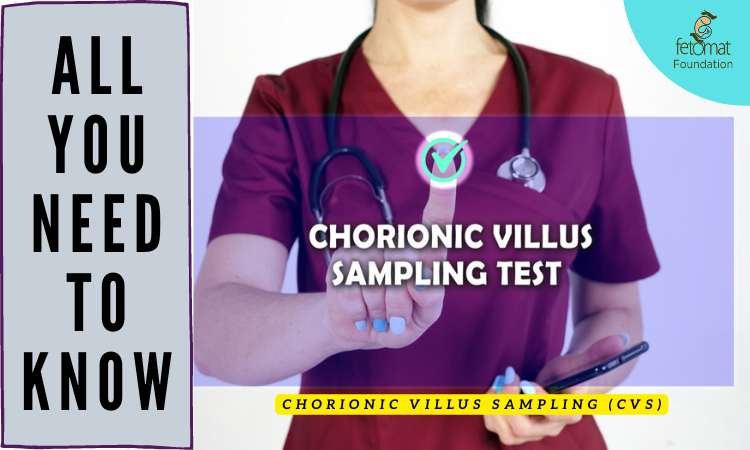The Chorionic Villus Sampling procedure is often used along with amniocentesis to diagnose genetic disorders. The test can also be used to determine a baby’s sex, check for chromosome problems, and even assess a fetus for infection. If your doctor has asked for a chorionic villus biopsy in Kolkata, it helps to have a thorough understanding of the test. Let’s understand the what’s, why’s, and how’s.
What is Chorionic Villus Sampling (CVS)?
CVS is a type of prenatal test that foretells if the baby has any genetic condition. It’s like amniocentesis but is performed earlier in pregnancy than amniocentesis. If you are at a higher risk of having a baby with a genetic condition, your doctor may recommend chorionic villus sampling (CVS).
Chorionic villus sampling (CVS) is usually done between the 10th and 13th weeks of pregnancy. CVS involves inserting a thin needle through your abdomen or inserting a thin tube through your cervix to remove cells from the placenta for testing. The placenta provides nutrients and oxygen to the developing fetus and removes waste products from the baby’s blood. The cells in the placenta are the same as those in the developing baby, so testing them can tell doctors whether your baby has certain conditions.
Who Needs CVS?
Most women can have this test if they choose, but it’s generally recommended only for those at high risk of having an infant with a genetic or chromosomal abnormality. For example, some women may opt for CVS if they’re older than 35 or are carriers of an inherited condition such as cystic fibrosis, Tay-Sachs disease, or spinal muscular atrophy.
Some women may choose CVS based on their ethnic background or personal beliefs. For example, certain genetic diseases occur more often in specific ethnic groups. A woman who knows her ethnic background may want certain genetic tests done during pregnancy if there are diseases that are more common in her group.
Other women may want CVS because they have already had one child with a genetic disease and don’t want to take a chance on having another affected child. They can find out if the baby has the same condition as their other child before it is born and decide whether they want to continue the pregnancy.
At large, if you’re at increased risk of having a child with a birth defect, your doctor might recommend chorionic villus sampling (CVS) to determine whether your baby has any genetic disorders.
How it’s Done?
In most cases, a small sample of cells will be taken through the vagina via a catheter inserted into the cervix. Most doctors also perform an ultrasound at this time to help guide the catheter into place. This procedure usually takes around 30 minutes and is performed on an outpatient basis. A local anesthetic may be given before the procedure begins to minimize any discomfort during the procedure
Final Words:
If you or someone in your family has experienced genetic diseases or abnormalities in the past, then you may want to consider CVS as the first step to an accurate diagnosis. This procedure is not without its risks and concerns, however, so please ensure that your doctor provides you with accurate information about it before consenting ahead of time. Find a good pregnancy testing centre in Kolkata and get the test done.

